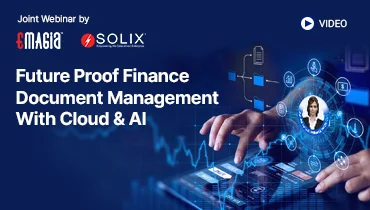In the business world, extending credit to a customer is a necessary function of commerce. It’s an act of trust, a calculated risk that allows a company to sell goods and services without an immediate transfer of funds. However, without a formal and strategic approach, this act of trust can quickly become a liability. Unchecked credit can lead to a domino effect of late payments, bad debt, and a significant drain on your company’s working capital.
This is why effective **Access Credit Management** is no longer just a defensive measure. It is a proactive, strategic function that directly impacts a company’s financial health, growth trajectory, and customer relationships. A modern approach to credit management goes beyond merely chasing payments; it is about accessing the right information at the right time to make intelligent, data-driven decisions that balance risk with opportunity. It ensures that you are extending credit only to those who can pay and that you are prepared to respond quickly to changes in their financial health.
The End-to-End Credit Management Process
A robust credit management process is a continuous cycle that begins long before the first invoice is sent. It involves a series of interconnected steps that must be executed with precision and consistency.
1. Establishing a Solid Credit Policy
The foundation of a successful credit operation is a clear and well-defined credit policy. This policy acts as the rulebook, standardizing the entire process and eliminating guesswork. It should outline key components such as credit application requirements, specific credit limits, standard payment terms, and the procedures for handling late payments. A strong policy ensures that every credit decision is made on a consistent and objective basis.
2. The Modern Credit Application and Onboarding
The first point of contact for a new customer seeking credit is the application. A manual, paper-based application can be a lengthy process that delays sales. A modern, digital credit application streamlines this step, capturing all necessary information efficiently while providing a superior customer experience. The data collected at this stage is crucial for the subsequent analysis.
3. Intelligent Credit Analysis and Risk Assessment
This is where the real work of credit management begins. A thorough analysis is required to determine a customer’s creditworthiness. This includes pulling reports from commercial credit bureaus, analyzing financial statements, and validating trade references. An intelligent credit analysis uses a blend of internal and external data points to create a comprehensive risk profile, ensuring that credit decisions are based on a complete picture of the customer’s financial health.
4. Making Data-Driven Credit Decisions
Once the analysis is complete, a decision must be made to approve, deny, or approve with a specific credit limit. An effective credit management system provides the data and insights necessary to make this decision quickly and confidently. For low-risk customers, this can even be an automated process, allowing for instant customer onboarding and a seamless sales experience.
5. Continuous Credit Portfolio Monitoring
The process does not end with a decision. A modern credit management process involves continuous monitoring of the entire customer portfolio. This means regularly checking for changes in a customer’s credit score, late payment trends, or other financial red flags. This proactive approach allows you to adjust credit limits or take early action to mitigate risk before a problem escalates.
The Power of Automation and AI in Credit Management
Traditional credit management is riddled with manual tasks, fragmented data, and inherent inefficiencies. The advent of automation and artificial intelligence has revolutionized this field, transforming a reactive, administrative process into a proactive, strategic advantage.
Faster and More Accurate Credit Decisions
AI-powered credit scoring models can analyze vast amounts of data in seconds, providing a precise and objective credit risk assessment. This eliminates human bias and allows for faster credit decisions, which means you can onboard new customers in minutes, not days.
Proactive Risk Mitigation
By leveraging predictive analytics, a modern credit management system can forecast future risk based on historical data, payment trends, and external economic indicators. This gives you an early warning system, allowing you to proactively engage with customers and adjust credit terms before a payment default occurs.
Enhanced Operational Efficiency
Automating tasks like data gathering, credit checks, and workflow approvals frees up your credit team from mundane, repetitive work. They can focus on analyzing complex exceptions and building strategic relationships with customers, significantly increasing the productivity of your finance department.
How Emagia Revolutionizes Access to Credit Management
Emagia’s AI-powered Order-to-Cash platform provides a comprehensive and intelligent approach to **Access Credit Management**. Unlike traditional systems that are siloed and reactive, Emagia’s solution gives businesses a single, centralized workbench to proactively manage credit risk across their entire customer portfolio.
Emagia’s platform features a fully digital and mobile-responsive credit application that streamlines customer onboarding. It automatically pulls data from a wide range of sources, including global credit bureaus like Dun & Bradstreet and Experian, internal ERPs, and external data sets. Using its powerful AI engine, the platform then provides a dynamic, real-time credit score and a recommended credit limit. It doesn’t stop there. Emagia provides continuous, 24/7 monitoring of all your customers, automatically generating alerts for any changes in their risk profile. This proactive approach allows you to make agile credit decisions and ensure that your business is always protected from potential bad debt, while still enabling a fast and frictionless sales process.
FAQs – Your Questions About Credit Management Answered
What is the importance of credit management for a business?
Credit management is crucial for a business because it directly impacts cash flow and profitability. By carefully evaluating and managing the credit you extend, you can minimize the risk of bad debt, accelerate cash collections, and ensure your business has the working capital it needs to grow.
How does a business start a credit management process?
A business should start by creating a formal credit policy that outlines its terms and procedures. The next steps involve implementing a standardized credit application, conducting thorough credit analysis for new customers, and establishing a process for ongoing monitoring and collections.
What are the “Five C’s” of credit?
The “Five C’s of Credit” are a framework used to assess a customer’s creditworthiness. They stand for: Character (credit history), Capacity (ability to pay), Capital (financial reserves), Conditions (purpose and environment of the credit), and Collateral (assets that can be used to secure the debt).
How do credit reporting agencies help in credit management?
Credit reporting agencies (like Dun & Bradstreet) are essential because they provide objective, third-party data on a customer’s payment history, credit score, and financial health. This information is a critical input for a business’s credit analysis and risk assessment.
What is the difference between credit management and debt collection?
Credit management is a proactive, end-to-end process that begins with setting credit terms and includes ongoing monitoring to prevent bad debt. Debt collection is a reactive subset of credit management that focuses specifically on recovering payments from accounts that have already become past due.



